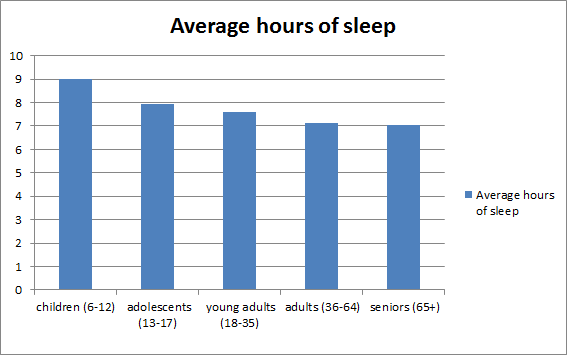From the data we collected, it showed that children (6-12), adolescents (13-17), young adults (18-35), adults (36-64), seniors (65+) had an average amount of sleep of 8.97, 7.91, 7.68, 7.13, and 7.02 hours respectively. The data indicates that there is an inverse relationship between age and average hours of sleep per night.
For the ANOVA test we rejected the null hypothesis which in turn lends support to the alternate hypothesis that there is a statistical difference between at least two of the means. The result was expected because researchers suggest that sleep duration differs depending on the age of the individual. As people age, the hours of sleep decreases due to numerous factors such as health problems, stress and possible reduction of the sleep hormone melatonin.
In terms of the T-test, we rejected the null hypothesis which in turn lends support to the alternate hypothesis that the mean sleeping hours for children is greater than the mean for adults. Again, the result was expected because research show that adults are constantly stressed about family and work which could potentially reduce their sleep hours.
